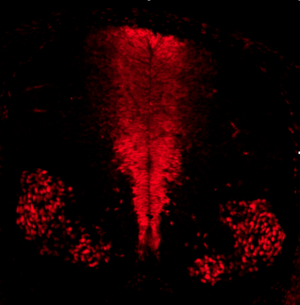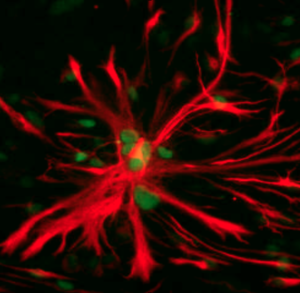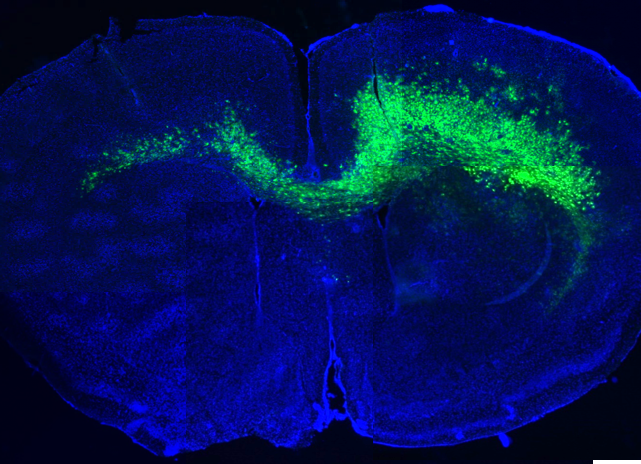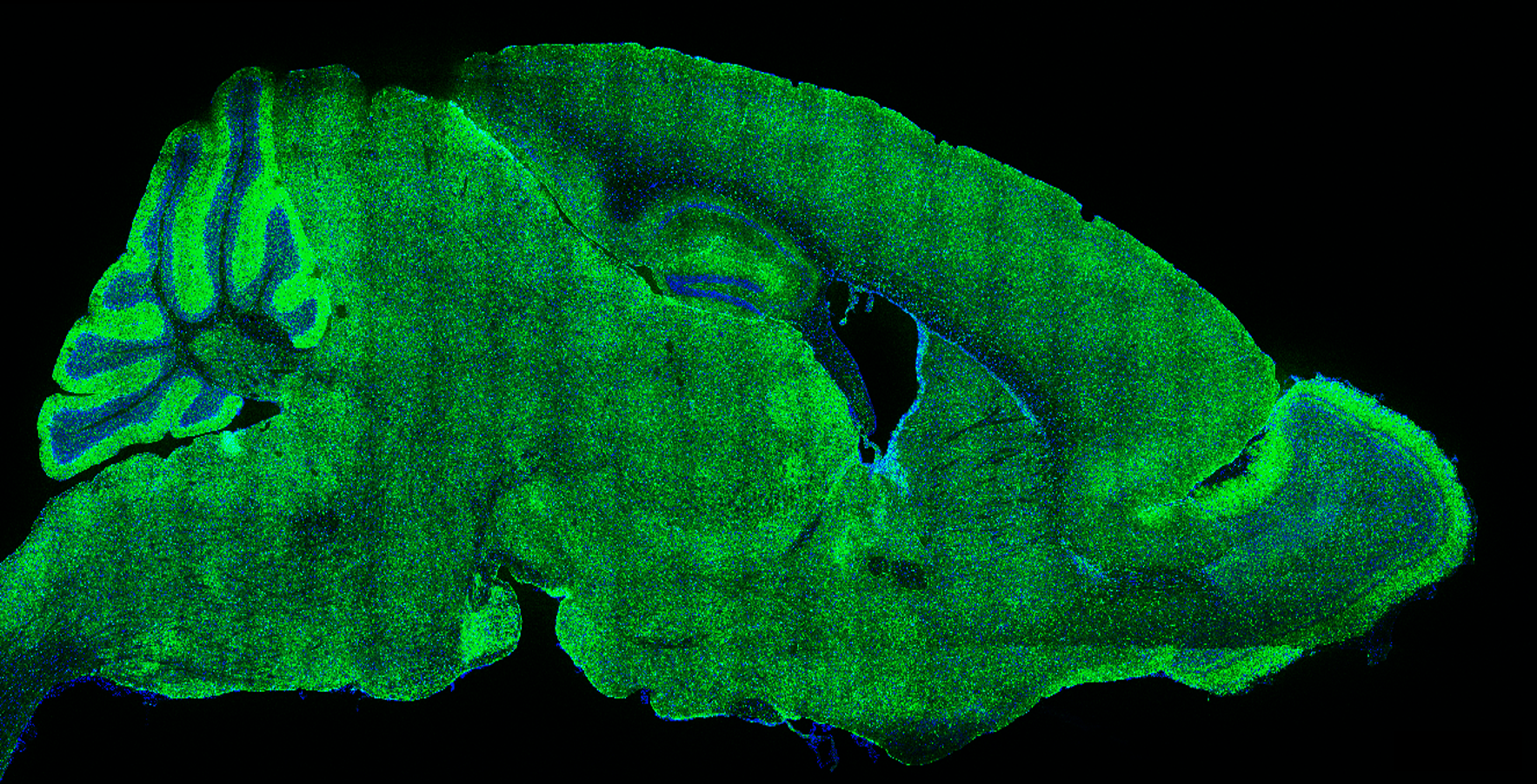

Laboratory of Glial Biology
Astrocytes are the most abundant glial cell in the adult brain and participate in a diverse range of tasks essential for brain function, including synapse formation, neurotransmission, and formation of the blood-brain barrier. Given their intimate association with neurons, astrocytes have emerged as key regulators of brain circuit function and a host of associated behaviors. Therefore a central goal of our lab is to understand astrocyte-neuron interactions and decipher how these relationships regulate brain circuits and associated behaviors during development, in adult mice, and in neurological disease.
Malignant glioma is the most lethal form of primary brain tumor and remains a clinical enigma. Many of the mechanisms utilized by astrocytes and glial cells in development and in the adult are hijacked by glioma tumors to promote malignant progression. This has led to the burgeoning field of “Cancer Neuroscience”, where bi-directional tumor interactions with neurons has emerged as central driver of progression. Through this lens our lab is focused on understanding how glioma tumors interact with neurons to drive tumor-related epilepsy and malignant progression.




Astrocytes (green)
Research in our lab has been made possible by generous support from the following:
NIH-NINDS
NIH-NIA
NIH-NCI
Cancer Prevention Research Institute of Texas
National Multiple Sclerosis Society
David and Eula Wintermann Foundation
American Cancer Society
Sontag Foundation
V Foundation for Cancer Research
Musella Foundation For Brain Tumor Research & Information